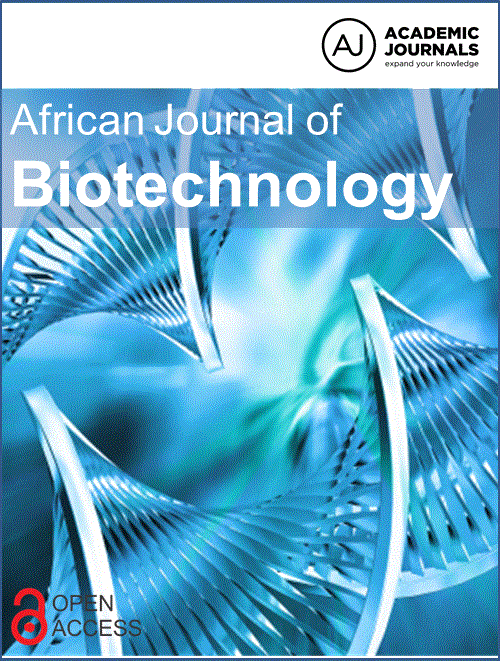Sixty three potato clones (51 farmers’ and 12 varieties) from Eritrea, 18 and 12 varieties from Kenya and Rwanda, respectively were characterized using 12 highly polymorphic simple sequence repeat (SSR) markers. The study was designed to assess the genetic diversity and varietal distinctness among the different samples. In total, 91 alleles ranging between 2 (STM1053) to 13 (STM0031) alleles per marker were scored. All but 97.8 SSR markers were highly polymorphic with an average PIC value of 0.87 (0.51 to 0.98). All of the 51 farmers’ cultivars were clearly distinct from each other. Samples from Eritrea showed the highest genetic diversity as explained by the diversity index (h). The principal coordinate analysis (PCoA) revealed that the local farmers’ Eritrean samples are different from the Kenyan, Rwandese and even the imported varieties. Genetic distance analysis generated three clusters correlating with the PCoA findings. Cluster I consisted of 45 samples with 6 sub-clusters; Cluster II consisted of 29 samples with a majority (26) from Eritrea while cluster III consisted of 19 samples. Potato materials from Eritrea appeared to cluster separately from the other samples, which reflects a contribution from the Tuberosum germplasm prominent in temperate regions, unlike from the Andigenum germplasm for Kenyan and Rwandan potato materials. Most of the Eritrean samples in cluster I are farmers’ cultivars with intermediate maturity, good performance and better tuber quality characteristics. Cluster II contains mainly the imported variety from Eritrea characterized by late emergence and late maturity. The Kenyan and Rwandese were grouped mainly in Cluster III. In summary, the farmers’ cultivars are distinct from the Kenyan and Rwandese materials and represent more genetic diversity than the varieties imported into Eritrea. This finding is of interest to national breeding program to use the farmer’s materials as source of genetic variation for traits of interest.
Genetic diversity assessment of farmers’ and improved potato (Solanum tuberosum) cultivars from Eritrea using simple sequence repeat (SSR) markers
Citation: Biniam, M.G.; Githiri, S.M.; Mehari, T.; Kasili, R.W.; Ghislain, M.; Magembe, E. 2016. Genetic diversity assessment of farmers’ and improved potato (Solanum tuberosum) cultivars from Eritrea using simple sequence repeat (SSR) markers. African Journal of Biotechnology. ISSN 1684-5315. 15(35):1883-1891.
2016-12-13
BIODIVERSITY FOR THE FUTURE, GENETIC RESOURCES
AFRICA, Eastern Africa
ERITREA
journal_article

